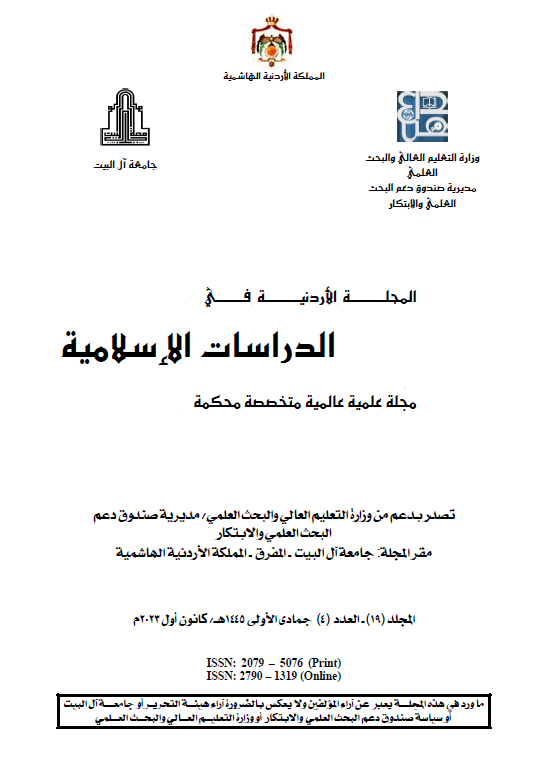The Effect of the Formula on the Marriage Contract according to the Shafi’is and Choices of the Jordanian Personal Status Law
DOI:
https://doi.org/10.59759/jjis.v19i4.279Keywords:
Jordanian Personal Status Law, Form, Marriage ContractAbstract
This study aims to examine the impact of the form (i.e., wording) on the marriage contract in the Shafi'i school of thought in a comparative context with other schools of thought. The study also applies this examination to the Jordanian Personal Status Law. The problem addressed by the study was: "What is the impact of the form on the marriage contract in the Shafi'i school of thought? To what extent has the new Jordanian Personal Status Law incorporated the concept of form?" The study's objectives include defining the concept of form and elucidating its impact on the marriage contract in the Shafi'i school of thought, as well as highlighting the influence of the Shafi'i school on the Jordanian Personal Status Law in the context of form. The study revealed that according to the Shafi'i school, a marriage contract is only valid when formulated using the wording "marriage and union" or its equivalent translation. Furthermore, the new Jordanian Personal Status Law has been influenced by the Shafi'i school in the aspect of form, as it permits marriage only in the form of "marriage and union" or its translation. The study is divided into two sections. In the first section, the Shafi'i perspective on the concept of form is discussed, emphasizing its reliance on specific explicit words, with limited substitution permissible only in cases of speech impairment. The Shafi'i school also expressed its view on future-oriented marriages or those subject to conditions not yet fulfilled, allowing such marriages to be valid only if the conditions are met. This is because they intended for the contract to be binding to produce its legal effects. In the context of marriage, conditions and stipulations are considered forms. Additionally, the study addressed the issue of conducting the contract in a language other than Arabic, outlining the necessary conditions for such an occurrence. Finally, the findings to the Jordanian Personal Status Law are applied, demonstrating how the law has incorporated the Shafi'i school's perspective on these matters.





